This section features a detailed cross-reference designed to enrich your understanding of the Scriptures.
Below, you will find carefully selected verses that echo the themes and teachings related to 2 Samuel 15:26 KJV. Click on any image to explore detailed analyses of related Bible verses and uncover deeper theological insights.
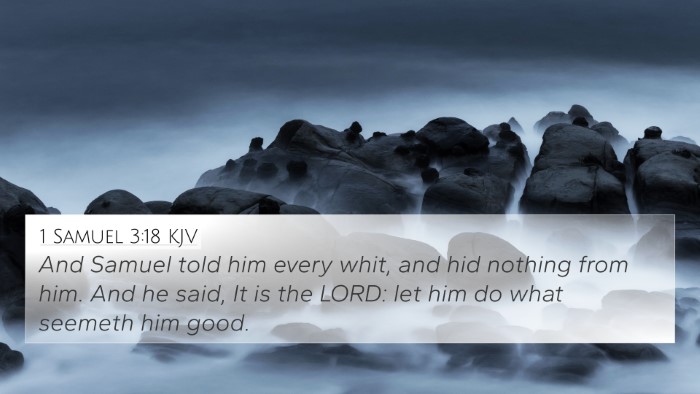 1 Samuel 3:18 (KJV) »
1 Samuel 3:18 (KJV) »
And Samuel told him every whit, and hid nothing from him. And he said, It is the LORD: let him do what seemeth him good.
 2 Samuel 22:20 (KJV) »
2 Samuel 22:20 (KJV) »
He brought me forth also into a large place: he delivered me, because he delighted in me.
 1 Kings 10:9 (KJV) »
1 Kings 10:9 (KJV) »
Blessed be the LORD thy God, which delighted in thee, to set thee on the throne of Israel: because the LORD loved Israel for ever, therefore made he thee king, to do judgment and justice.
 Numbers 14:8 (KJV) »
Numbers 14:8 (KJV) »
If the LORD delight in us, then he will bring us into this land, and give it us; a land which floweth with milk and honey.
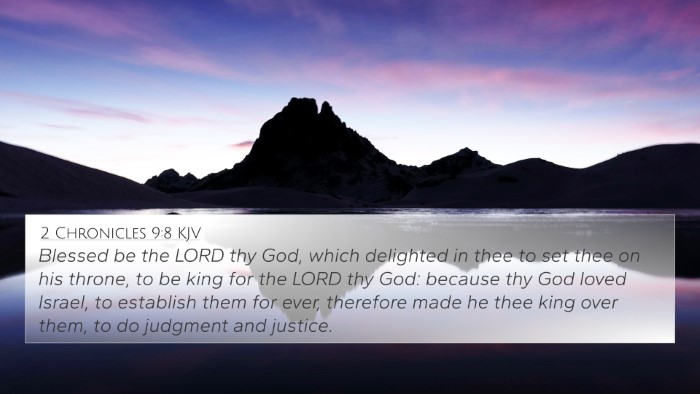 2 Chronicles 9:8 (KJV) »
2 Chronicles 9:8 (KJV) »
Blessed be the LORD thy God, which delighted in thee to set thee on his throne, to be king for the LORD thy God: because thy God loved Israel, to establish them for ever, therefore made he thee king over them, to do judgment and justice.
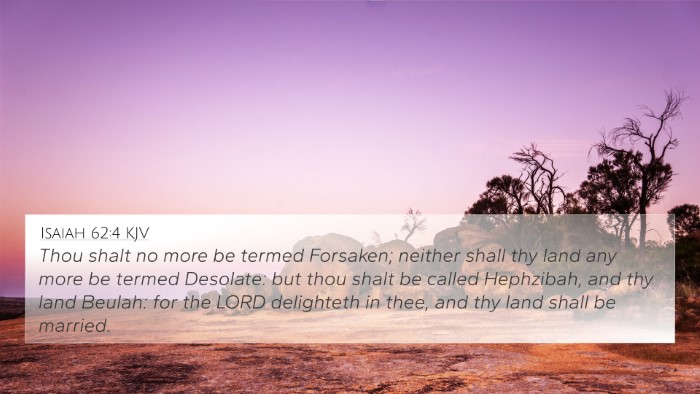 Isaiah 62:4 (KJV) »
Isaiah 62:4 (KJV) »
Thou shalt no more be termed Forsaken; neither shall thy land any more be termed Desolate: but thou shalt be called Hephzibah, and thy land Beulah: for the LORD delighteth in thee, and thy land shall be married.
 Jeremiah 32:41 (KJV) »
Jeremiah 32:41 (KJV) »
Yea, I will rejoice over them to do them good, and I will plant them in this land assuredly with my whole heart and with my whole soul.
 Jeremiah 22:28 (KJV) »
Jeremiah 22:28 (KJV) »
Is this man Coniah a despised broken idol? is he a vessel wherein is no pleasure? wherefore are they cast out, he and his seed, and are cast into a land which they know not?
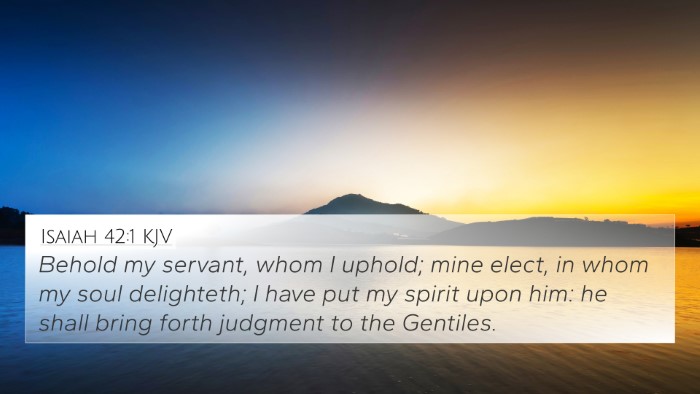 Isaiah 42:1 (KJV) »
Isaiah 42:1 (KJV) »
Behold my servant, whom I uphold; mine elect, in whom my soul delighteth; I have put my spirit upon him: he shall bring forth judgment to the Gentiles.
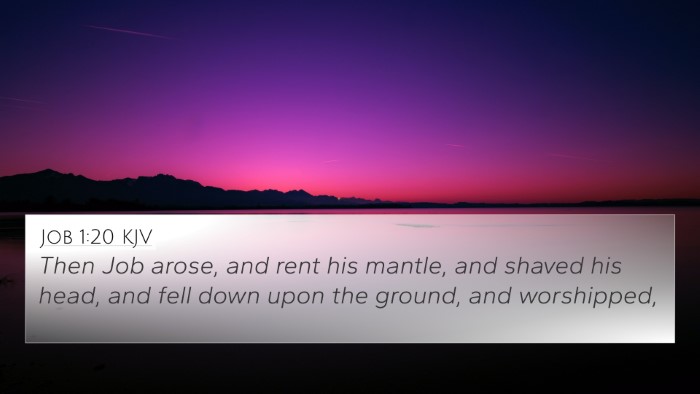 Job 1:20 (KJV) »
Job 1:20 (KJV) »
Then Job arose, and rent his mantle, and shaved his head, and fell down upon the ground, and worshipped,
 Judges 10:15 (KJV) »
Judges 10:15 (KJV) »
And the children of Israel said unto the LORD, We have sinned: do thou unto us whatsoever seemeth good unto thee; deliver us only, we pray thee, this day.















